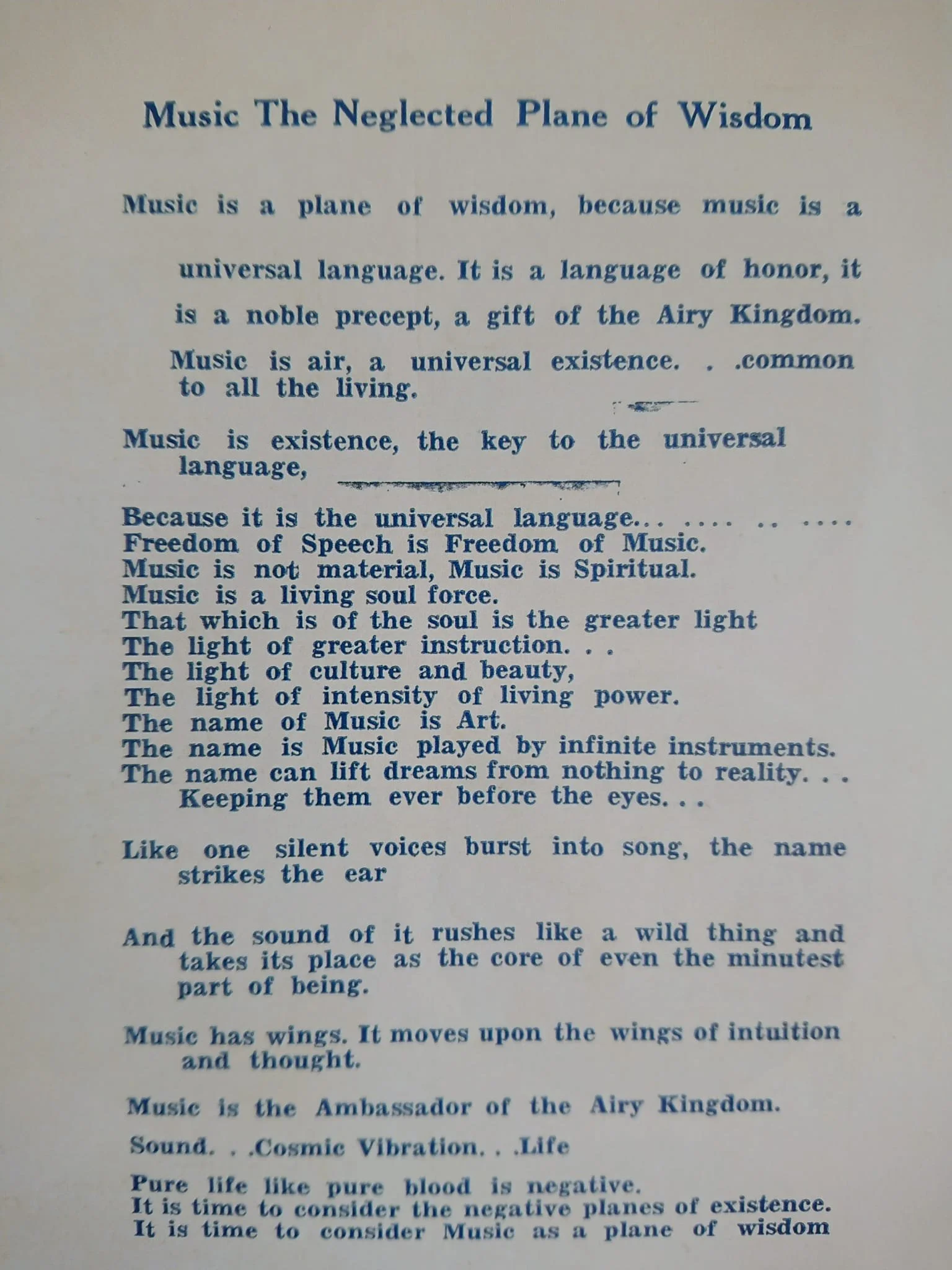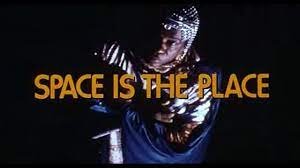C—D1
Sun Ra
Music is a plane of wisdom, because music is a universal language, it is a language of honor, it is a noble precept, a gift of the Airy Kingdom, music is air, a universal existence … common to all the living. Music is existence, the key to the universal language. Because it is the universal language.
Sun Ra's world view was often described as a philosophy, but he rejected this term, describing his own manner as an "equation" and saying that while philosophy was based on theories and abstract reasoning, his method was based on logic and pragmatism. Many of the Arkestra cite Sun Ra's teachings as pivotal and for inspiring such long-term devotion to the music that they knew would never make them much money. His equation was rarely (if ever) explained as a whole; instead, it was related in bits and pieces over many years, leading some to doubt that he had a coherent message. However, Martinelli argues that, when considered as a whole, one can discern a unified world view that draws upon many sources, but is also unique to Sun Ra, writing:
Sun Ra presents a unified conception, incorporating music, myth, and performance into his multi-leveled equations. Every aspect of the Sun Ra experience, from business practices like Saturn Records to published collections of poetry to his 35-year career in music, is a manifestation of his equations. Sun Ra seeks to elevate humanity beyond their current earthbound state, tied to outmoded conceptions of life and death when the potential future of immortality awaits them. As Hall has put it, 'In this era of 'practical' things men ridicule even the existence of God. They scoff at goodness while they ponder with befuddled minds the phantasmagoria of materiality. They have forgotten the path which leads beyond the stars.'
He drew on sources as diverse as the Kabbalah, Rosicrucianism, channeling, numerology, Freemasonry, Ancient Egyptian Mysticism, and Black nationalism. Sun Ra's system had distinct Gnostic leanings,[58] arguing that the god of most monotheistic religions was not the creator god, not the ultimate god, but a lesser, evil being. Sun Ra was wary of the Bible, knowing that it had been used to justify slavery. He often re-arranged and re-worded Biblical passages (and re-worked many other words, names, or phrases) in an attempt to uncover "hidden" meanings. The most obvious evidence of this system was Ra's practice of renaming many of the musicians who played with him.
Sun Ra's philosophy can be further understood in viewing his film Space is the Place. The film opens with Sun Ra on a distant planet, where the music and vibrations are much different from Earth where the air is filled with the sounds of “guns, anger and frustration.” A colony is erected on this planet specifically for black people because only on a distant planet will the black race be free to return to their natural vibrations and live in harmony. This will give rise to an “altered destiny.” The film also discloses Sun Ra's ideas on how to get his people to another planet. This can be accomplished through, “isotopic teleportation, trans-molecularization, or better still – teleport the whole planet here through music.”





